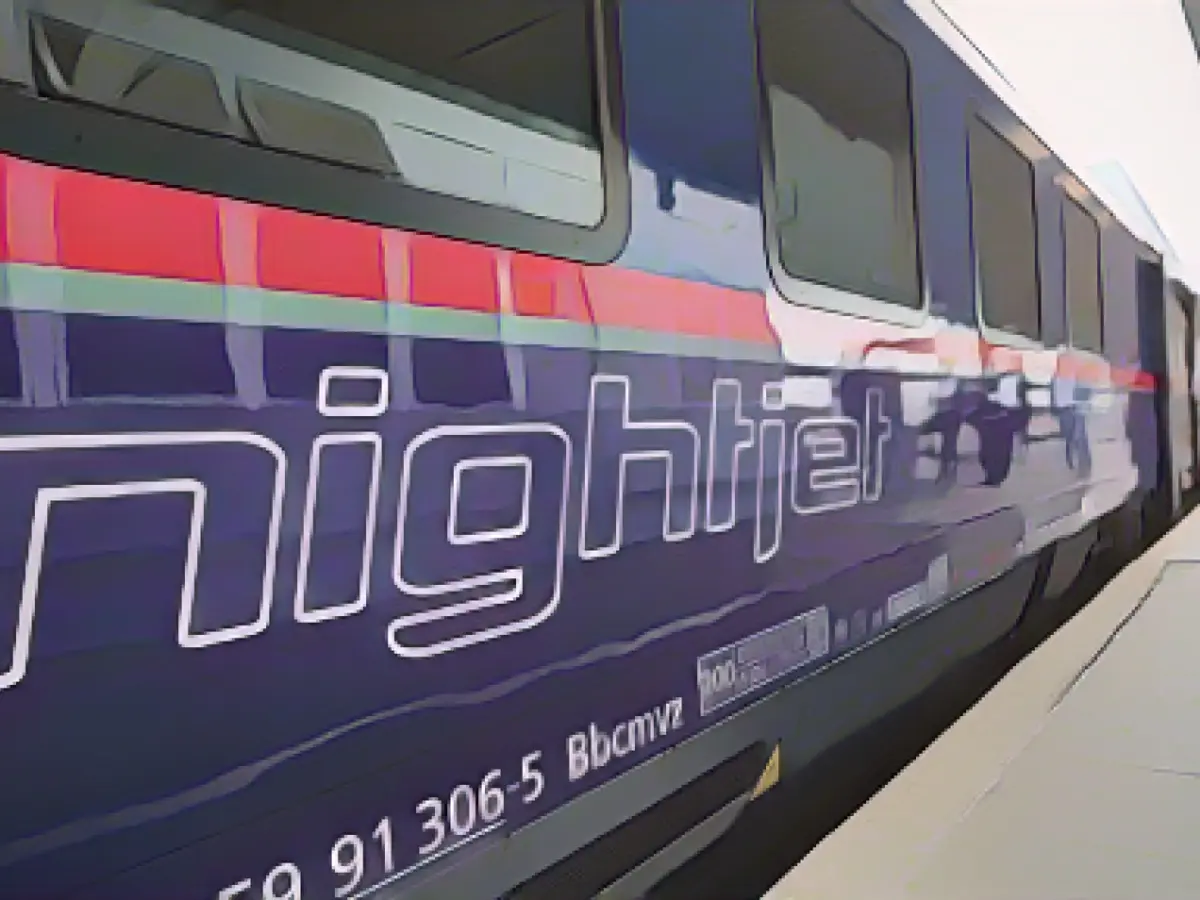Revamped Rail Adventure: Snooze in Berlin, Awaken in Paris: The Resurgence of Night Trains in Germany
Transport enthusiasts have long been advocating for an increase in night trains across Europe, posing a sustainable alternative to air travel for lengthy trips. Austrian Federal Railways (ÖBB) have led this charge, introducing more connections to the tracks. As of this week, a night train has made its comeback between Berlin and Paris, marking nearly a decade since the last such service.
ÖBB collaborates with German state rail Deutsche Bahn, French state rail SNCF, and Belgian NMBS/SNCB to run this night train. Operating vehicles lovingly known as the Nightjet hail from ÖBB itself. The seamless combination of staff and operations from all participating rail companies guarantees a comfortable journey. Initially, the Nightjet will operate three times a week between Berlin, Paris, and Brussels. Ambitious plans call for a daily service from October 2024. Upon arrival, passengers find themselves at Paris Est station.
Austria Takes the Lead in Night Trains
Following the discontinuation of its night train service in Germany in 2014, Deutsche Bahn has recently revived interest in the concept. This revival stems from ongoing discussions about night trains’ role in the transportation shift and pressure from competing companies.
Scandinavian rail company SJ has also provided night train services between Hamburg and Stockholm since the spring of this year. Meanwhile, the Dutch European Sleeper launched a night train connection between Berlin and Amsterdam in 2023, filling the gap left by Deutsche Bahn's departed night trains.
Exclusively partnering with foreign rail companies, Deutsche Bahn has not operated its own trains in the past. Critics have expressed reservations about the resurgence of night trains on the railroads. Dirk Flege, managing director of the pro-rail lobby group Allianz pro Schiene, posits that a return to night trains is feasible but only in the distant future, stating that a service reappearance would require at least four to five years to come to fruition.
No Budget-friendly Alternative to Air Travel?
Flege highlights the need for catch-up in the realm of transportation not just in Germany but across Europe as well. He praises the new night train connection between Berlin, Paris, and Brussels, which addresses the growing demand from travelers. He goes on to express a desire for attractive direct night train connections from Germany to the UK, Spain, and the South of France to make long-haul journeys even more comfortable.
One potential challenge for followers of the new night train between Berlin and Paris may be the relatively high cost. Even the most affordable offer, as of early January, currently pegs at close to 45 euros for a second-class seat with a reservation, albeit with a share of a six-person compartment. Prices in the couchette cars range from nearly 100 euros (for a six-person couchette compartment) to more than 600 euros (for a private couchette car). In sleeping cars with beds, a trip costs between 165 euros for a three-person bedded compartment and 475 euros for a single-bed compartment (all prices as of December 11).
This cost may pose a challenge for many families, emphasizing Neuß, head of the passenger association Pro Bahn. He notes that while the new connection presents a step in the right direction, affordable options for long-haul trains are still needed on Europe's railways.
Bonus Reads
- Navigating Accessibility on Vacation: Invaluable Tips and Top Destinations
- The Lame Duck: Unmasking GDL's Boss Claus Weselsky
- Preparing for Strike-related Delays and Train Cancellations: A Guide for Passengers' Rights
- Bolstering Travel Rights: EU Commission’s Plans for Strengthening Journey Protections
Key Insights
- The newly introduced Berlin to Paris and Brussels Nightjet service runs in cooperation with ÖBB, Deutsche Bahn, SNCF, and NMBS/SNCB.
- Austria's ÖBB is spearheading the resurgence of night trains in Europe, with plans to launch additional connections in the future.
- Deutsche Bahn has recently reevaluated its position on night trains due to pressure from competitors and the conversation about the role of night trains in the transition of transport.
- ÖBB's Nightjet vehicles are being used for this particular connection and are operated by all participating rail companies.
- The Dutch European Sleeper and Swedish rail company SJ are two examples of other companies offering night train services between European cities.
Sources: & Additional Insights








